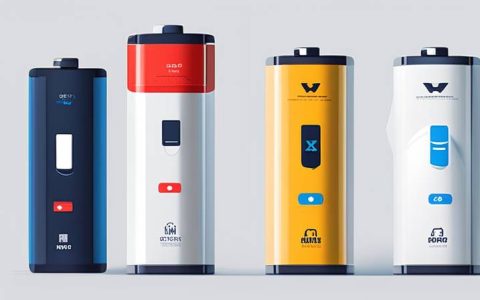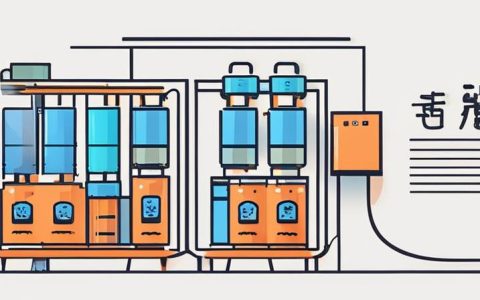<img src=https://nenpower.com/wp-content/uploads/2024/10/image-3177.jpg alt=’How BYD’s energy storage systems facilitate energy resilience for businesses’ />
How BYD’s energy storage systems facilitate energy resilience for businesses
BYD’s energy storage solutions enhance energy resilience for businesses through 1. Improved Energy Security, 2. Cost Savings, 3. Environmental Sustainability, 4. Scalability and Flexibility. Energy security allows enterprises to maintain operations during grid failures or fluctuations. This capability is vital in today’s increasingly unstable energy landscape, where interruptions can hamper productivity and profitability. When businesses incorporate BYD’s cutting-edge technology, they can operate independently of energy supply disruptions and manage their energy use more effectively to mitigate costs and reduce environmental footprints.
1. IMPROVED ENERGY SECURITY
In today’s fast-paced business climate, energy security remains a primary concern for organizations of all sizes. Unexpected power outages can have severe ramifications, from lost productivity to disrupted services. BYD’s energy storage systems serve as a buffer against these interruptions, ensuring continuous access to power. By integrating renewable energy sources, such as solar or wind, with energy storage capabilities, businesses can create a resilient energy mix that stabilizes their operations. This approach provides safety against reliance on traditional power grids, which can be vulnerable to failures or fluctuations.
Moreover, organizations can store excess energy generated during peak production from renewables and use that stored power during higher demand times or outages. This capability enhances the overall reliability of energy supply, thus ensuring operations proceed without interruption. Furthermore, companies can participate in energy arbitrage by leveraging lower electricity rates during off-peak times, further solidifying their energy independence.
2. COST SAVINGS
The financial implications of energy storage systems cannot be overstated. By adopting BYD’s technology, businesses can experience significant reductions in operational costs. Traditional energy procurement methods are often laden with fluctuations and unpredictable expenses due to variable rates and peak demand charges. Energy storage helps mitigate these variances, enabling companies to stabilize their energy costs effectively.
In essence, storing energy during off-peak hours at lower rates while maintaining operations during peak periods can lead to substantial savings. By employing strategies to optimize energy usage, organizations can significantly lessen their reliance on high-cost grid energy. Furthermore, by harnessing renewable energy sources, businesses can take advantage of various incentives such as tax credits or grants, which can alleviate upfront costs related to implementing energy storage systems.
Moreover, these savings extend beyond immediate financial benefits. Organizations that adopt energy-efficient technologies often enjoy improved public perception and competitiveness in their respective markets. This dual advantage reinforces the rationale for integrating energy storage solutions, as businesses navigate economic landscapes that increasingly favor sustainability.
3. ENVIRONMENTAL SUSTAINABILITY
The pursuit of environmental sustainability lies at the heart of modern business strategies. BYD’s energy storage systems play a pivotal role in reducing corporate carbon footprints. By integrating these systems with renewable energy sources, enterprises can significantly diminish their reliance on fossil fuels, leading to lower greenhouse gas emissions. This shift illustrates a commitment to sustainable practices that resonate with both customers and stakeholders alike.
In addition to contributing to a cleaner environment, energy storage solutions also facilitate compliance with stringent regulatory requirements aimed at reducing emissions. Many jurisdictions have enacted aggressive policies to push for cleaner energy practices, and adopting BYD’s solutions can help businesses meet or exceed these standards. Consequently, companies can position themselves as leaders in sustainability, resulting in enhanced brand loyalty and customer trust.
Furthermore, the focus on sustainability yields long-term operational resilience. A well-implemented energy storage system ensures that businesses can adapt to evolving environmental policies and market conditions, securing their place in an increasingly eco-conscious global economy. The transition towards sustainable practices not only results in positive environmental impact, but also fortifies businesses against future regulatory and reputational risks.
4. SCALABILITY AND FLEXIBILITY
The scalability and flexibility offered by BYD’s energy storage systems make them an ideal choice for a variety of businesses, regardless of their size or energy needs. These systems can be designed to accommodate different energy requirements, which means they can grow alongside an organization’s expansion. As businesses evolve and their energy consumption patterns change, BYD’s solutions can be fine-tuned accordingly, ensuring optimal performance at all times.
This adaptability is particularly beneficial in industries with fluctuating energy demands. Whether a business experiences seasonal surges or requires energy for new operations, BYD’s systems can be expanded or modified to meet these changing needs efficiently. Additionally, businesses can implement energy storage in phases, distributing capital expenditures over time to manage budgets effectively without sacrificing the ability to scale.
By maintaining flexibility in energy management, companies can respond swiftly to unforeseen challenges, such as sudden spikes in energy prices or changes in regulatory landscapes. These systems can serve as a strategic advantage, allowing businesses to navigate periods of uncertainty with resilience.
5. SOCIAL AND ECONOMIC PERSPECTIVES
Adopting BYD’s energy storage systems extends beyond mere technical advantages. Social and economic perspectives play a pivotal role, whereby businesses stand to benefit significantly from community engagement and support. As more organizations embrace sustainable practices, they contribute positively to local economies by generating green jobs and fostering innovation within the energy sector.
Moreover, socially responsible companies often enjoy enhanced reputations, which help attract clientele and retain employees. Creating an image of a forward-thinking organization that prioritizes environmental stewardship can prove invaluable when engaging customers or prospective hires. Employees, in particular, tend to favor companies that demonstrate commitment to sustainable principles, allowing businesses to enhance employee satisfaction and retention rates.
In addition, businesses positioned as sustainability leaders can leverage their efforts to influence suppliers and partners to adopt similar practices. This ripple effect not only amplifies the impact of adopting BYD’s energy storage solutions but also reinforces a company’s role as a change agent within its industry. Establishing collaborations around shared sustainability goals can enhance overall competitiveness and community resilience.
6. INNOVATION AND FUTURE TRENDS
As the market for energy storage evolves, innovation and future trends will be critical in maintaining competitive advantages. BYD continues to invest in research and development to enhance its energy storage technologies, integrating advanced features that reduce costs, improve efficiency, and simplify user experiences. Businesses can leverage these innovations to refine their energy strategies continuously.
Furthermore, the future will likely bring an increase in the integration of artificial intelligence and data analytics within energy systems. These technologies can enhance operational efficiency by analyzing consumption patterns and predicting demand fluctuations. Consequently, organizations can optimize their energy strategies, ensuring that storage systems align with real-time energy needs.
In sum, BYD’s commitment to innovation ensures that businesses incorporating their energy solutions will remain relevant in a fast-evolving landscape. As regulations tighten and public expectations shift towards sustainability, organizations embracing cutting-edge technologies will be better positioned for future challenges.
FREQUENTLY ASKED QUESTIONS
HOW DO BYD ENERGY STORAGE SYSTEMS WORK?
BYD’s energy storage systems function by storing excess electricity generated from renewable sources, such as solar panels or wind turbines, for later use. The systems use advanced lithium-iron-phosphate batteries that charge when energy demand is low and discharge when demand is high or during power outages. This not only provides businesses with a steady and reliable power supply but also enhances energy efficiency by helping companies avoid peak demand rates. The interconnected system can be monitored and managed via sophisticated software platforms that optimize its performance, ensuring businesses always have access to the energy necessary to maintain their operations effectively.
WHAT ARE THE PRIMARY BENEFITS FOR BUSINESSES?
The primary benefits for businesses utilizing BYD’s energy storage systems include enhanced energy security, cost savings, and environmental sustainability. Businesses can achieve energy independence, reduce downtime during outages, and optimize energy expenditure by storing energy for use during peak pricing periods. Additionally, companies can significantly lower their carbon footprints by incorporating renewable energy sources into their operations, making them more competitive in increasingly eco-conscious markets. Finally, these systems provide scalability and flexibility, allowing businesses to adapt their energy strategies seamlessly as their demands change over time.
HOW CAN BUSINESSES FINANCE THE INSTALLATION OF ENERGY STORAGE SYSTEMS?
Financing options for the installation of BYD’s energy storage systems can varied depending on businesses’ specific circumstances. Common approaches include leasing arrangements, power purchase agreements (PPAs), and various government grants or incentives aimed at encouraging renewable energy adoption. Businesses may also explore financing through traditional bank loans or seek out partnerships with energy service companies to share the cost burden. By evaluating available financing options, organizations can minimize initial capital expenditures while still achieving the numerous benefits of energy storage adoption.
Incorporating BYD’s energy storage systems allows organizations to navigate an uncertain energy landscape with reliability and efficiency. The multifaceted advantages they offer—ranging from improved energy security to significant cost savings—position businesses for success amid increasing competition and scrutiny surrounding sustainability. The present and future of energy management demands innovative solutions that not only address immediate operational needs but also adhere to longer-term environmental and economic goals. Energy resilience is no longer an option for companies; it is a prerequisite for maintaining competitiveness in today’s marketplace. As seen through the lens of BYD’s solutions, embracing a proactive approach toward energy management is essential in fostering a sustainable, efficient, and resilient operational framework. Effectively leveraging these systems can enhance productivity, build reputation, and secure long-term profitability, demonstrating the transformative power of modern energy storage technology. Therefore, investing in such solutions is not merely about cost-benefit analysis; it is about future-proofing an organization against an unpredictable energy landscape while contributing positively to global sustainability efforts.
Original article by NenPower, If reposted, please credit the source: https://nenpower.com/blog/how-byds-energy-storage-systems-facilitate-energy-resilience-for-businesses/











